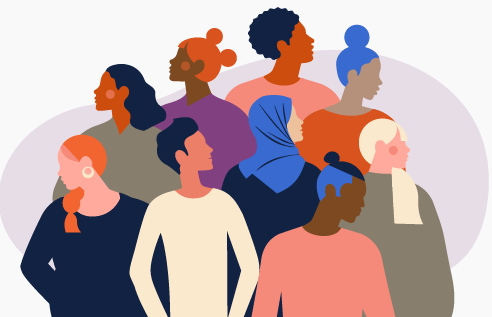Drop the Labels! Kids Shine When We Focus on Strengths

Are you familiar with labeling theory? Sociology buffs probably are. It proposes that people come to both identify and behave in ways reflecting the labels we place on them— Essentially, how we label people impacts their behavior.
The theory helps explain changes often occurring in individuals diagnosed with mental health conditions—suggesting cultural ideas associated with mental illness become personally relevant for those struggling.
Labels, and the stigma associated with them, lead to internalized negative self-beliefs, resulting in secrecy around diagnosis, reluctance to seek treatment, and social withdrawal.
Potential Impact of Labeling
- Increased psychiatric symptoms and reduced prognosis.
- Reluctance to seek treatment or stick with it.
- Social isolation
- Lack of understanding by family, friends, coworkers, or others
- Fewer opportunities for work, school, social activities, or trouble finding housing
- Bullying, physical violence, or harassment
- Lack of self-esteem and learned helplessness.
A Different Perspective—Focus on Strengths!
Want to know the secret to engaging kids and families in behavioral health services? It starts with focusing on strengths! Studies show positive outcomes happen when we build on competencies instead of concentrating on deficits.
Everyone possesses a uniqueness that helps them evolve in their journey. Unique characteristics include:
- Potential
- Strengths
- Capabilities
—What receives attention or focus becomes what we strive for, eventually becoming a reality.
—Be careful with your words and language. Our language creates our (and other’s) reality.
—Accept change, life, and our world are ever-evolving; don’t resist.
—Support others authentically. You will see that your relationships are deeper and more meaningful.
—The person is the storyteller of their own story.
—Build on what you know to dream of the future.
—Capacity building has multiple facets and organizations. Be flexible.
—Be collaborative. Be adaptive and value differences.
How Can You Leverage a Strengths-Based Approach?
#1: Emphasize positive outcomes
Focus on positive and healthy treatment outcomes for kids, such as self-confidence, connectedness, and healthy relationships with their family, friends, and community.
And don’t forget to highlight positive traits like strong character or being caring and compassionate.
#2: Involve kids in decision-making
Kids and caregivers should be able to voice their opinions and reason through decisions with their mental health providers.
#3: Emphasize collaboration
Echoing the previous recommendation, give kids every opportunity to collaborate regarding their treatment! To engage kids in their strengths, they need to feel empowered and supported.
#4: Provide stability
Long-term involvement builds trust and helps children understand how to develop and maintain supportive relationships.
#5: Connect kids to their community
Make sure kids have lots of opportunities for community involvement. Link them to local committees, school activities, youth groups—whatever lights their fire and keeps them connected!
Excerpted from “Drop the Labels! Kids Shine When We Focus on Strengths” from Youth Dynamics. Read the source article online.
Source: Youth Dynamics | Drop the Labels! Kids Shine When We Focus on Strengths, https://www.youthdynamics.org/drop-the-labels-kids-shine-when-we-focus-on-strengths | © 2020 Youth Dynamics. Retrieved January 2023.
If you have concerns about your child or teen, CHC Care Coordinators can arrange a free 30-minute consultation so you can explore options with an expert. We invite you to call or email us at 650.688.3625 or careteam@chconline.org to set up an initial Parent Consultation appointment. CHC teletherapy services are available now.





